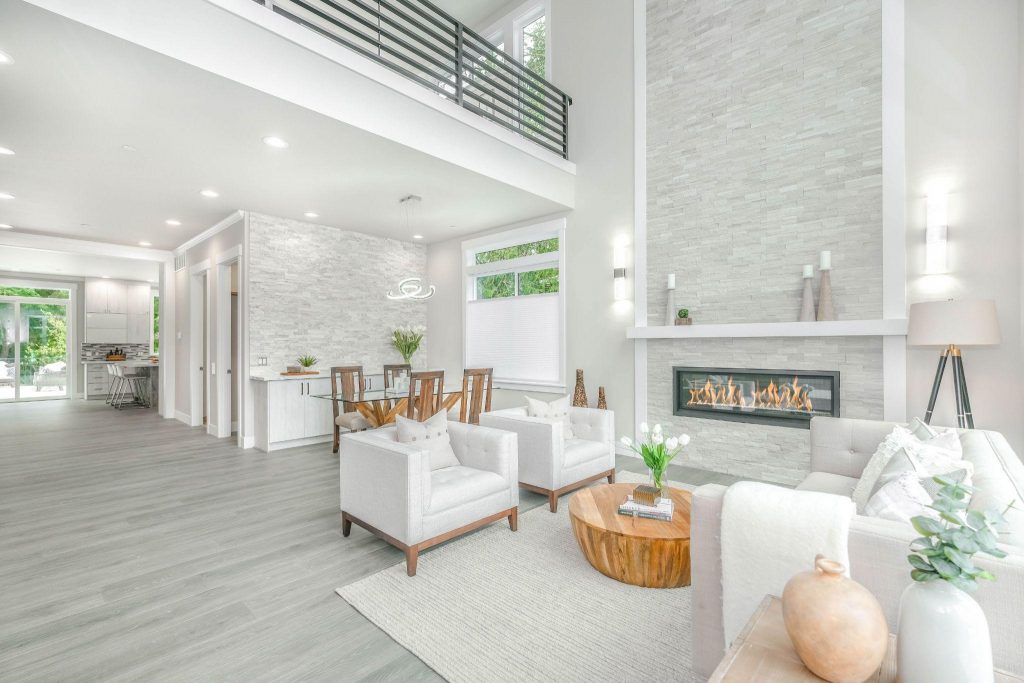Most individuals modify their houses to make them more beautiful, comfortable, and practical. Regardless of your decision, the trip to completion will be hard, but you will be pleased you did it once the end objective is reached. Here’s what to consider when renovating your home:
1. Budget
Budgeting is never simple. A major project that you have never done before provides an even greater problem than just preparing a budget. A precise strategy and extensive study are required to create a workable budget for this sort of project.
Renovating your house may be an expensive endeavor. You must obtain the necessary supplies and engage the necessary tradesmen to accomplish the desired alterations.
It may require some time and money. Before you begin, you should decide how much money you are willing to spend. The sum is variable and will most likely vary as you price out the supplies and labor, but completing this first step will give you a better feel of where you stand.
Consider the following: Financing If you are remodeling your entire property, you will most certainly require some type of financing. This will entail interacting with your bank or specialised lenders and obtaining feedback from them.
It is recommended to follow their advice because they will have done this before and will be aware of the overall prices and budget you will require. However, be flexible if modifications are required later on. In other words, if feasible, keep a modest contingency fund.
Labor
This will most likely consume the majority of the money and will be one of the most significant costs. Nonetheless, you get what you pay for, and the best contractors will assist you in pricing out the full task based on their prior expertise. Furthermore, when you properly compensate for competent work, you frequently discover that you save money on supplies. This is because skilled tradesmen who know their profession are adept at minimizing waste.
If you choose cheaper labor, you may discover that the task takes longer, more materials are required, and the pricing remains the same.
Materials
The cost of materials may vary greatly depending on how much of your home you are remodeling. As you choose your complete house, you will observe a considerable boost when compared to just one or two rooms.
To obtain an estimate, you will normally need to obtain bids from various contractors and solicit their feedback. As previously stated, you must listen to what they have to say and base your judgment on it.
2. Measurements
It will enable you to keep in mind the size of the improvements and how they will fit into your current furnishings. This is frequently neglected and, if not handled early enough, can lead to major complications.
Will all of your present white goods, for example, fit in the area you’ve set aside? In contrast, as the area grows larger, will you need to buy more goods to keep the room from seeming empty?
This applies to all rooms you will be renovating, but especially to your bedroom. If you are purchasing new bedding and mattresses, this guide can assist you in determining which size mattress will fit ideally in your newly created room. Getting your measurements right is critical during the renovation process and should not be left until the last minute. If your budget allows, you might consider employing a qualified architect to design everything out and collaborate with the general contractors.
3. Which Room Comes First?
Before allowing your contractor to begin work, you must carefully evaluate which room or rooms you want to have completed first. This is done so that you may maintain some sense of normalcy as the work continues.
The kitchen and at least one bedroom are the most usual rooms to finish first. You will need a location to escape the mess and mayhem if you are renovating your house. Also worth mentioning, keep an eye on the kitchen. Most of the time it gets overlooked, but it’s one of the most important parts of the home. Check all the details, from cabinets to copper tops.
4. Evaluate Several Quotes
Choosing the appropriate contractor is difficult. You want to employ someone with excellent experience, a strong portfolio, and competitive prices. You undoubtedly know what you want, but you’re not sure how to locate it.
What should you look for while interviewing each one?
Examine their background
Find out what jobs they have recently done and how they went. Contact the folks who hired them last to obtain their feedback. After all, you’ll be spending a lot of money and want to know if they’re worth it.
Check their licenses
Depending on where you reside, they should have the necessary permissions to work in this field.
Check that they have insurance
Check that they have enough insurance to cover all conceivable occurrences, not just structural and health issues, but also if they are unable to complete the task. It would be prudent to inquire whether they are bonded.
Inquire about payment terms: do they want half now, half later, or would they take installments as the work progresses? These are the questions you should ask each contractor during your interview. As a side note, avoid any contractor that requires full payment up ahead.
5. Maintain a Timeline That Is Realistic
This is the slogan of many home improvement websites. However, it is not as easy as that. Setting a deadline is preferable to having a realistic timeframe that you wish to follow.
This includes contingency planning and budgeting for minor overruns. You should also consider how long it will take to clean up and put things back where they belong, since this may effect when you can return to normalcy.
6. Be ready for anything
Construction is a combination of art and science, and certain materials carry it even farther into the art realm. This presents unanticipated problems that must be solved in order to accomplish the task on time.
This building will go much more smoothly and stress-free if you can roll with the punches and expect the unexpected. Home remodeling is time-consuming, expensive, and stressful. It becomes more manageable and feasible by preparing carefully and being adaptable.


Pingback: DIY Home Remodeling Tips For Your Florida Beach House
Pingback: Helpful Tips On How To Sell Your House Fast